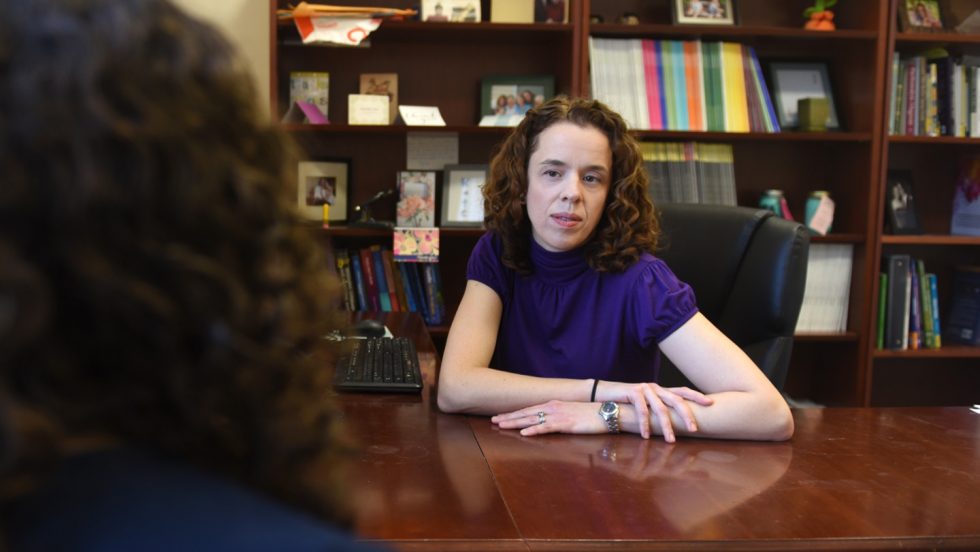
Katherine Fiori, PhD, was a young graduate student at the University of Michigan when she was first introduced to the Early Years of Marriage (EYM) Project—a long-term study launched in 1986 to look at how the early development of marriage impacts a variety of marital outcomes, including the mental and physical health of spouses, the stability of marriage, patterns of family life, and the individual issues involved in marriages that end in divorce. In the early 2000s, she was hired by Terri Orbuch, PhD, the project’s principal investigator, to help categorize for the study the “divorce narratives” of couples in the project’s first wave whose marriages had ended.
More than a decade later, as a professor and department chair in Adelphi University’s Gordon F. Derner School of Psychology, Dr. Fiori began to contemplate how data from the EYM Project might inform her research interest in social networks—how people interact with others in their lives—including how couples merge these networks and the implications of this merging on well-being. After reconnecting with Dr. Orbuch, Dr. Fiori published several research articles that were grounded in EYM’s social network data.
“One of the really interesting things about the EYM data is that, because questions are asked of both marital partners, we can look at whether or not they agree on certain issues,” said Dr. Fiori. “This inspired me to explore how much they agree on social network issues that tend to be particularly triggering for couples.”
Dr. Fiori’s latest study using EYM data, “You Aren’t As Close to My Family As You Think: Discordant Perceptions About in-Laws and Risk of Divorce,” recently published in a special issue of the journal Research in Human Development, looks at a notoriously fraught marital relationship—that of couples and their in-laws. She and her fellow researchers examined common issues in in-law relationships, such as whether or not couples agree on whose family they spend more time with, whose family they call on for advice or help, and how close they are to each other’s families, to look at how these agreements—or disagreements—impact marriages.
There is much research showing that spouses who agree on a variety of issues, from the division of household labor to the stability of the relationship itself, are more likely to remain married, and that having a “shared reality” helps couples stay together. Research even shows that partners in agreement on the problems in their relationships are more successful in therapy than those who disagree. It seems that consensus on relationship issues can often be just as—if not more—important than the marital issues themselves.
Dr. Fiori’s research about relationships with in-laws shows a similar pattern. She says that one of the most surprising findings was that neither husbands’ nor wives’ own reports of connections with in-laws—time spent, family called on for support, closeness—predicted the likelihood of divorce over time. Instead, it was disagreement about their relationships with each other’s families that predicted divorce. Clearly, consensus—even about how problematic a relationship is—proves to be important to the success of a marriage.
Particularly of note, when it is the husband who reports feeling close to his wife’s family but she reports he’s actually not, couples are at an even greater risk of divorce. Results continue to imply that the husband’s actual closeness with his wife’s family is less important than whether or not the two agree on the matter.
Though more research is needed to understand why disagreement about the essence of issues is often more important than the issues themselves, Dr. Fiori says that one obvious explanation is conflict—more disagreement likely leads to greater conflict, which can lead to a marriage’s deterioration.
“Being on the same page in a marriage, on issues big and small, seems to be key to marital success,” says Dr. Fiori. “Through further research, we hope to better understand why agreement is so important, with the goal of helping couples effectively work on their relationships.”